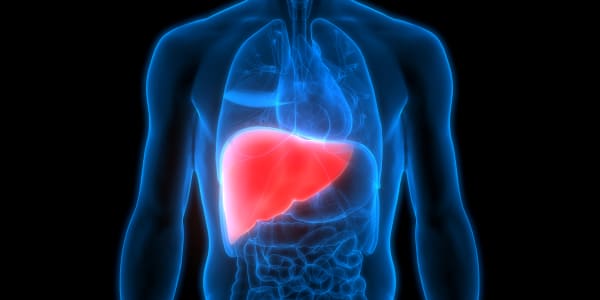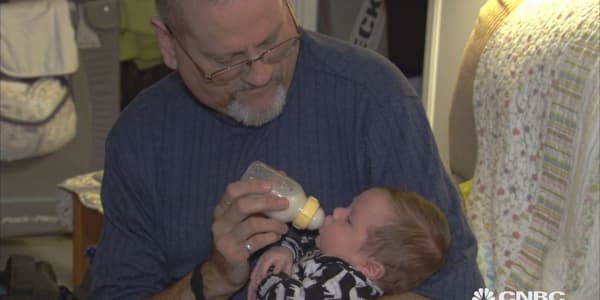President Donald Trump revealed his new plan to combat the opioid crisis on Monday in New Hampshire, a state hard-hit by painkiller and heroin addiction and overdose in recent years. The call to execute certain drug traffickers is drawing the most attention, but another part of the plan could make a big difference: The White House will support research into developing a vaccine for opioid addiction.
This support would boost the efforts of scientists who hit a major breakthrough in December. Researchers at the Walter Reed Army Institute of Research and the National Institute on Drug Abuse developed an experimental heroin vaccine for mice and rats. They found that antibodies in the vaccine bound to the heroin before crossing the blood-brain barrier, thus preventing the euphoric effects of the drug.
Taking a drug that works in mice and making it work in humans is a big step, and this vaccine still has a long way to go. Funding will make a big difference.
"It's central," said Dr. David Rosenbloom, a professor of public health at Boston University. "You need research dollars for the basic research, and you need significant research for clinical trials."
The vaccine didn't interfere with methadone or buprenorphine, mild opioid medications that are used to wean opioid addicts off the drug. These medications reduce withdrawal and cravings. The vaccine also didn't interact with naloxone (also known as Narcan), the medication used to reverse an opioid overdose.
Doctors argue this vaccine's noninterference with other treatments is crucial, because curbing the opioid crisis will require a multifaceted approach. The vaccine itself won't solve the problem.
"This is not any kind of magic bullet," said Dr. John Franklin, the chief of addictions in the department of psychiatry and behavioral sciences at Northwestern. "This is another tool to give opioid users a chance."
Franklin said the vaccine will work only in the short term and require repeated doses. It will be very expensive, and addicts will have to voluntarily take it. But if implemented along with other opioid treatments, the vaccine could play a promising role in curbing the epidemic.
According to the Centers for Disease Control and Prevention, there were more than 42,000 opioid-related deaths in 2016. The White House has yet to reveal how much support it will give to developing a vaccine, but Trump has called for $13 billion in additional funding over the next two years for the Department of Health and Human Services.
The call to support this research is part of the "Reduce Demand and Over-Prescription" portion of Trump's plan unveiled by the White House on Monday as Trump spoke on opioids in New Hampshire, a state hard-hit in recent years by the drug crisis. Other parts of the plan include "Help Those Struggling with Addiction" and "Cut off the Supply of Illicit Drugs," which is the section that includes seeking the death penalty against certain drug traffickers.
Although an opioid addiction vaccine is still in the early stages, there are new medications to fight the crisis that are much further along. Naltrexone, which comes in pill and injection form, blocks the effects of opiates in the brain. Doctors are also working on an implantable patch of buprenorphine to help patients.
No one treatment is going to solve the opioid crisis. A controversial study on naloxone, for example, demonstrated the drug could have adverse effects without other measures in place. But each new treatment option gives doctors a better chance of reversing the damage.
"Any of these approaches are to give people a running start on how to change their lives," Franklin said.
More from Modern Medicine:
Military vets support medical marijuana to curb opioid abuse
High schools tackle teen opioid addiction
Trump's bellicose words lead to surge in anti-nuclear attack pills





